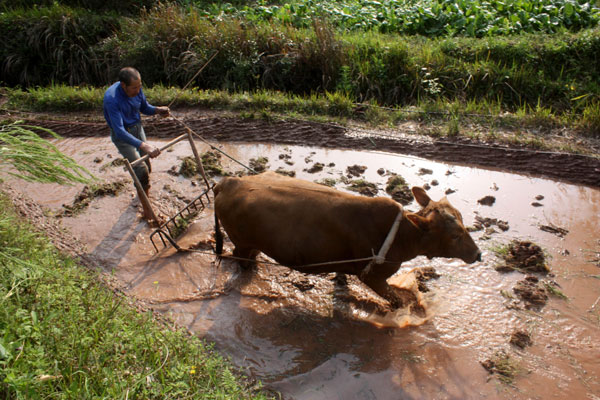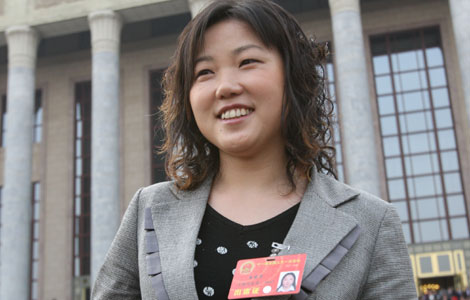Draft amendment to settle land disputes
Updated: 2012-12-25 03:36
By ZHAO YINAN (China Daily)
|
||||||||
A draft amendment that includes the change of a solitary clause may be able to ease long-standing land disputes in China.
The suggestion, proposed on Monday to the top legislature, the Standing Committee of the National People's Congress, could potentially influence 674 million rural residents, more than half of the people in the world's most populous country.
The only clause in the draft amendment to the Land Administration Law, emphasizing "fairness" in rural land seizure, removes the legislative cap on land compensation, and asks governments to improve the pension and social insurance of landless farmers.
 |
|
A farmer drives his bull to plough in preparation for rice planting in Yaoping, a village in Chongqing, in April. CHEN JIANHUA / FOR CHINA DAILY |
Current land law stipulates that land compensation should not exceed 30 times the land's average annual output in the past three years, although experts have long criticized the standard as rigid and failing to change with economic development and inflation.
Monday's draft, instead, requires that the living conditions of farmers whose land has been seized be improved and their future development be sustainable.
Song Dahan, director of the State Council's Legislative Affairs Office, said governments that seize farmers' housing sites should either offer new houses to farmers or compensate them in cash according to market prices.
"Land compensation will include more dominant factors that can influence land prices, in addition to the current stipulation that only considers annual output value," he said.
Factors such as location, supply-and-demand, local social-economic development and whether the landless farmers are protected by social insurance will be added in.
He said the draft also introduces the principle of "compensation comes first", which prohibits land seizure if the compensation money has not been secured.
To provide long-term protection, the draft asks governments to allocate a specific budget to improve the social insurance of landless farmers. If their rights are being infringed upon, farmers can apply to higher governments to review the decision of land seizure, or resort to courts.











